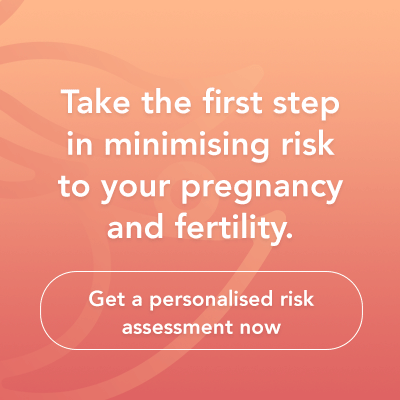Pregnancy is a transformative time for your body, with fluctuating hormone levels playing a significant role in this change. From the early stages of morning sickness to the third trimester’s physical and emotional shifts, supporting your hormones naturally can make a world of difference in maintaining your well-being throughout the journey.
Katrina Ridout, an Accredited Practising Dietitian & Nutritionist, highlights several holistic and practical ways to support hormonal balance during pregnancy.
1. Eat a Nutrient-Rich, Balanced Diet
Hormones are deeply influenced by the foods you eat, especially during pregnancy. A pregnancy dietitian will tell you that a balanced diet rich in whole foods provides essential nutrients that support hormonal production and function. Focus on:
- Healthy fats: Omega-3 fatty acids from sources like salmon, flaxseeds, and walnuts are crucial for hormone synthesis.
- Protein: Protein-rich foods, such as lean meats, eggs, legumes, and dairy, are vital for the growth and repair of tissues, including hormone-producing glands.
- Fruits and vegetables: These offer antioxidants that help combat inflammation and balance hormones.
- Wholegrains: These provide fibre, which supports healthy digestion and helps regulate blood sugar levels, further stabilising hormones.
Katrina emphasises the importance of a rainbow plate — incorporating a variety of colours from vegetables and fruits to ensure a wide range of vitamins and minerals to support both you and your growing baby. Additionally, looking for healthy pregnancy recipes that incorporate these ingredients can make meal planning simpler and more enjoyable.
2. Stay Hydrated
Proper hydration is often overlooked but plays a critical role in maintaining hormonal health. Dehydration can lead to imbalances, exacerbating issues like constipation and fatigue, which are common during pregnancy. Drinking enough water helps with the transport of nutrients and hormones throughout your body. It’s important to aim for at least 8 cups of water per day and more if you’re physically active or in warm climates.
3. Manage Stress with Relaxation Techniques
Stress can throw your hormones out of balance, especially during pregnancy when your body is already under a lot of physical and emotional strain. Chronic stress leads to elevated cortisol levels, which can negatively impact other hormones, potentially affecting your pregnancy.
Incorporating relaxation techniques into your daily routine, such as:
- Deep breathing exercises
- Prenatal yoga
- Meditation
These practices help reduce stress and promote a sense of calm and well-being, which supports hormone regulation.
4. Prioritise Sleep
Pregnancy brings on fatigue, and sleep is essential to restoring and balancing your hormones. Sleep deprivation can lead to imbalances in cortisol and melatonin, affecting mood and energy levels. Aim for 7-9 hours of sleep per night, and if you’re struggling with sleep quality, consider developing a bedtime routine, minimising screen time before bed, and creating a calm sleep environment.
5. Get Regular, Gentle Exercise
Moderate physical activity is essential for hormone regulation during pregnancy. Exercise improves circulation, balances blood sugar levels, and reduces stress. Gentle activities like walking, swimming, and prenatal yoga can be particularly beneficial for pregnant women.
Even simple daily movement helps stimulate the production of endorphins, which are your body’s natural mood enhancers and can help support overall hormonal health. Always check with your healthcare provider before starting any exercise routine to ensure it’s safe for your pregnancy.
6. Support Your Gut Health
Your gut health plays a key role in hormone regulation. A balanced microbiome can influence everything from oestrogen levels to immune function. Katrina suggests incorporating probiotics and prebiotics into your diet to support a healthy gut microbiome. Probiotic-rich foods like yoghurt, kefir, and fermented vegetables, along with prebiotics from fibre-rich foods like garlic, onions, and asparagus, can help maintain a healthy digestive system.
7. Consider Herbal Supplements with Caution
Some herbal teas and supplements can help support hormonal balance, but it’s essential to consult with your healthcare provider before incorporating them into your routine. Certain herbs, like ginger and chamomile, are safe during pregnancy, while others may not be. Katrina advises always speaking with a qualified healthcare professional to ensure safety and effectiveness.
8. Seek Guidance from a Pregnancy Nutritionist
A pregnancy nutritionist or pregnancy dietitian can provide personalised advice on how to best nourish your body during pregnancy. Whether it’s planning meals or developing pregnancy recipes that support your hormonal health, a professional can guide you on your journey to balance your body’s needs and avoid common pitfalls. If you’re in need of local expertise, Katrina Ridout in Brisbane offers tailored support for expectant mothers, ensuring you’re making the best choices for both you and your baby.
Supporting your hormones during pregnancy requires a multi-faceted approach that incorporates balanced nutrition, hydration, stress management, sleep, gentle exercise, and gut health. By adopting these natural strategies, you can help ensure that your hormones remain balanced and optimise your health and the health of your baby. As Katrina Ridout notes, making informed, holistic choices and consulting with a healthcare professional can help guide you through the hormonal changes of pregnancy with ease.
